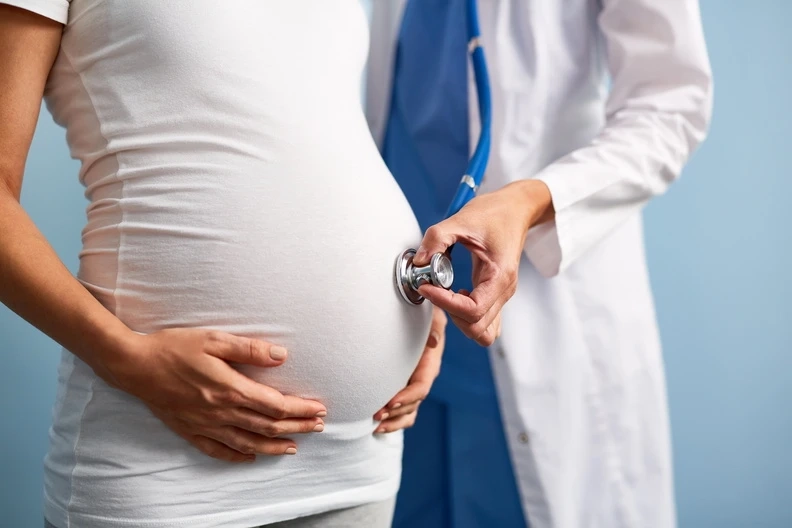The process of egg donation requires a lady with a fertile egg or oocyte. The fertile woman will donate her egg to a different woman to assist her in conceiving. This process is under assisted reproductive technology, also referred to as ART. A surrogate agency that focuses on egg donation works as the middle ground for the donors, the mother, and therefore the intended parents.
The process requires a doctor to get the eggs or the egg of a fertile donor. The doctor will fertilize those eggs in a laboratory wherein it'll become an embryo. The doctor will then transfer the embryos to the uterus of the recipient. This process is called the In Vitro Fertilization (IVF).
Sometimes, there are specialists in a facility who will freeze either some or all of the embryos which will be used afterward by different women. The egg donation process is usually employed by women who cannot utilize their eggs thanks to various reasons. These reasons could be ovarian failure, older age, or trying to avoid congenital anomalies.
The 2014 study of Fertility and Sterility has suggested that around 93 percent of fertility centers based within the US would offer an egg donation service. This journal indicated that the process often results in a successful birth rate which is at 49 to 50 percent.
Factors To Expect For The Procedure
Medication Intake
Specialists working in a surrogate agency or fertility facility are going to be conducting an intensive selection procedure when trying to seek out the most suitable donor. They're going to also carefully run through the legal procedures involved in the process.
At the start of the procedures, most donors must take a medicine that will stop their normal cycle.
Some of the side effects include:
FatigueBody achesHot flashesHeadacheAfter the medication, the donor will need to take fertility drugs that are used to stimulate the ovaries to produce several eggs. This process is called hyperstimulation. The donors are going to self-administer the fertility medication by injecting it under the skin or into a muscle. Some of the donors will experience mild effects from the medication Some side effects may include:
Tender BreastsMood SwingsBruise on the injection siteIn some rare cases, a lady might develop an OHSS or ovarian hyperstimulation syndrome. This happens when there are too many eggs that develop within the ovaries. Donors who develop the OHSS may have to be hospitalized. There's a risk that the donors might get pregnant before the eggs are taken which is why it is important to avoid intercourse or use a barrier sort of contraceptive sort of a condom. Throughout the donation process, the donor will have to undergo frequent ultrasound and blood tests to watch the body’s reactions to the given medications.
Extraction Process
Before the retrieval process of the eggs, the donor will get a final injection to organize the procedure. The doctor will have to perform the transvaginal ovarian aspiration to retrieve the eggs.
The doctor will then insert the ultrasound equipment into the vagina of the donor. The needles are going to be used to remove the eggs from the follicles within the uterus.
While the procedure is ongoing lasting half an hour, the doctor might give painkillers, anesthetic, or sedatives to the donor. Since this is often a minor procedure, the donor isn't required to remain at the hospital or the agency clinic overnight.
After The Extraction Process
Some of the ladies may require several days after the transvaginal ovarian aspiration process.
Some women may go back to their normal daily life the next day. There are other agencies that provide an aftercare service to their donors while some agencies do not. The process of egg donation may have an impact on the psychology of the donor which is why a lot of women will find it beneficial to work with a psychotherapist or a counselor after the procedure.
There are only a few risks involved in egg donation. The processes and medications for egg donors are almost like women using their own eggs during the IVF process. The usage of anesthetic carries very minimal risk to the egg retrieval process but serious problems are uncommon within the procedure.
Some women may have trouble during and after the procedure which is why it's essential for them to have an experienced doctor doing the procedure. It's important that donors and recipients work alongside a reliable surrogate agency to make sure that they're going to undergo a secure process.
Egg Donor & Surrogacy Institute (EDSI) is an award-winning Los Angeles surrogacy agency. We are the "Preferred Surrogacy Agency in California for Hands-on Personalized Service". Interested in becoming a surrogate, or an egg donor with our Beverly Hills surrogacy agency? Call (866)344-3662 today.
Visit https://eggdonorandsurrogacy.com/and register to be a surrogate or an egg donor.


